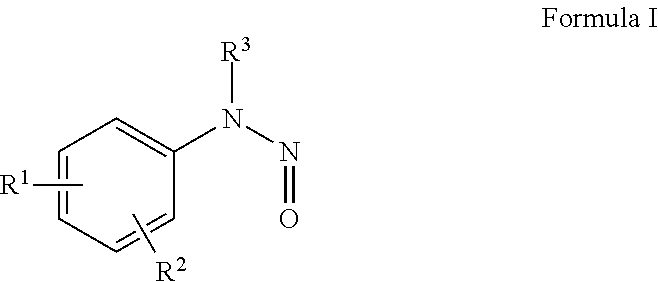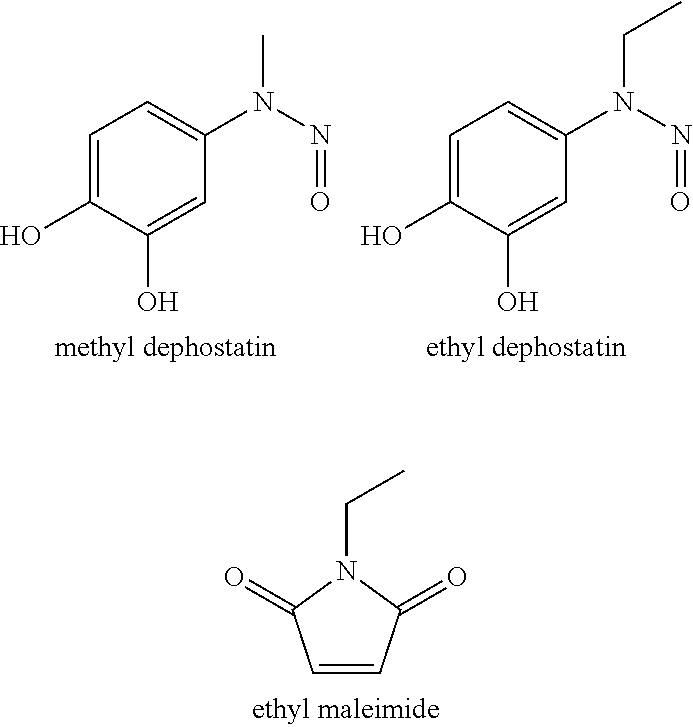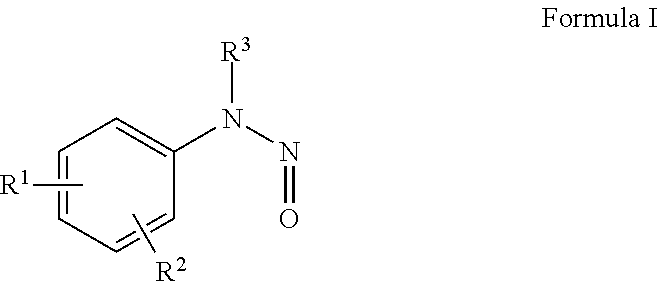Therapy and kit for the prevention and treatment of cystic fibrosis
a cystic fibrosis and kit technology, applied in the direction of peptides, peptide/protein ingredients, peptide sources, etc., can solve the problems of insufficient pancreatic and digestive function, abnormally concentrated sweat, and chronic pulmonary disease and respiratory infections, so as to prevent or treat cystic fibrosis, the effect of preventing or treating the subject's cystic fibrosis
- Summary
- Abstract
- Description
- Claims
- Application Information
AI Technical Summary
Benefits of technology
Problems solved by technology
Method used
Image
Examples
example 1
Materials and Methods
[0081]Protein Expression and Purification. CALP (UniProt Accession No. Q9HD26-2) was expressed and purified (Cushing, et al. (2008) Biochemistry 47:10084-10098). TIP-1 (Accession No. O14907) was expressed and purified similarly except that an N-terminal His10 tag was used with a HRV 3C protease recognition sequence (LEVLFQ*G; SEQ ID N0:35) upstream of the full-length protein sequence. Following TIP-1 purification via immobilized metal-affinity chromatography, the protein was injected onto a SUPERDEX S75 gel filtration column (GE Healthcare) equilibrated in 50 mM Tris pH 8.5, 150 mM NaCl, 0.1 mM TCEP, 0.02% NaN3. Human rhinovirus 3C protease (Novagen) was added to the protein at a 1:30 mass ratio and incubated at 4° C. for 48 hours. Following cleavage, the protein was passed through a 1 mL HISTRAP HP column (GE Healthcare) equilibrated in 20 mM imidazole, 25 mM Tris pH 8.5, 150 mM NaCl, 0.1 mM TCEP, 0.02% NaN3. The protein was further purified on a SUPERDEX S75 c...
example 2
Identification of Selective Inhibitors of the CAL and CFTR Interaction
[0104]Using peptide-array screening and fluorescence-polarization binding assays, a series of peptide sequences were identified that bind CAL progressively more tightly than CAL binds to CFTR, and that in parallel bind NHERF1 and NHERF2 progressively more weakly than these proteins bind to CFTR.
[0105]To test the ability of CAL inhibitors to rescue CFTR, cultured airway epithelial cells (cell line CFBE41o-, derived from a CF patient's Bronchial Epithelium) were grown on filters, permitting formation of polarized cell monolayers similar to those found in epithelial tissues. The CFBE41o-cell line is well-recognized as an airway epithelial model system for the study of CF processes. These cells express the most common disease mutant associated with CF, ΔF508-CFTR, which is characterized by the loss of a single amino acid codon at position 508 of CFTR. Roughly 50% of CF patients are homozygous for ΔF508-CFTR, and anoth...
example 3
Assays for Assessing Activity of Selective Inhibitors
[0109]Agents of the present invention can be assayed for their ability to stimulate chloride transport in epithelial tissues. Such transport may result in secretion or absorption of chloride ions. The ability to stimulate chloride transport may be assessed using any of a variety of systems. For example, in vitro assays using a mammalian trachea or a cell line, such as the permanent airway cell line Calu-3 (ATCC Accession Number HTB55) may be employed. Alternatively, the ability to stimulate chloride transport may be evaluated within an in vivo assay employing a mammalian nasal epithelium. In general, the ability to stimulate chloride transport may be assessed by evaluating CFTR-mediated currents across a membrane by employing standard Ussing chamber (see Ussing & Zehrahn (1951) Acta. Physiol. Scand. 23:110-127) or nasal potential difference measurements (see Knowles, et al. (1995) Hum. Gene Therapy 6:445-455). Within such assays, ...
PUM
| Property | Measurement | Unit |
|---|---|---|
| temperatures | aaaaa | aaaaa |
| temperature | aaaaa | aaaaa |
| pH | aaaaa | aaaaa |
Abstract
Description
Claims
Application Information
 Login to View More
Login to View More - R&D
- Intellectual Property
- Life Sciences
- Materials
- Tech Scout
- Unparalleled Data Quality
- Higher Quality Content
- 60% Fewer Hallucinations
Browse by: Latest US Patents, China's latest patents, Technical Efficacy Thesaurus, Application Domain, Technology Topic, Popular Technical Reports.
© 2025 PatSnap. All rights reserved.Legal|Privacy policy|Modern Slavery Act Transparency Statement|Sitemap|About US| Contact US: help@patsnap.com



